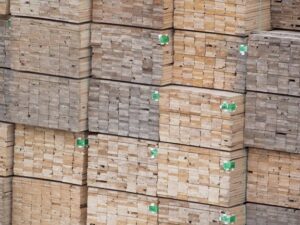
Toronto’s residential landscape will be changing in an effort to build more housing in the city.
City council voted in favour of moving forward with a recommendation to allow multiplexes in all neighbourhoods. In Wednesday’s 18-7 vote, council adopted a staff report that will make amendments to the City’s Official Plan and city-wide zoning bylaw.
“We have done extensive consultation, I have sent this out to my community multiple times,” says Deputy Mayor Jennifer McKelvie, adding she believes the change is something most Toronto residents want.
The amendment means single-family homes in any neighbourhood could be torn down and replaced with low-rise housing of two, three, or four units. The move will add to the diversity of housing options in areas of the city that lacked buildings with multiple units.
“There has been housing growth through mid- and high-rise apartment buildings concentrated in densely populated areas of the city,” reads a release from city staff. “The supply of low-rise housing, such as multiplexes, has not kept up with the demand.”
Coun. Stephen Holyday is warning the move will only reduce the quality of housing stock while driving up the prices by increasing competition among buyers.
“Anyone that now wants to buy a home, or rent a detached a home in any of these neighbourhoods, will now be competing with builders,” he says.
He also believes permitting multiplexes will change the existing profile of many neighbourhoods.
“The order of the buildings, the scale and proportion of the buildings, in one shot council is going to take that away.”
The release from city staff says the permission of multiplexes will still allow low-rise neighbourhoods to largely maintain their “built form and landscape amenities.”
“It’s an important start to address the housing crisis that we have here,” says Coun. Chris Moise. “We need all types of housing in this city.”
Council also adopted a housing pledge on Wednesday to achieve or exceed a provincial housing target of building 285,000 new homes by 2031.
That number represents 23 per cent increase in the city’s housing supply within 10 years. It means just over 31,000 homes will need to be built per year, double the average number of units built annually between 2017 and 2021.








